NCAN Summer Course 2026

Translating Adaptive Neurotechnologies:
Methodologies for Real-time Interactions with the Nervous System
National Center for Adaptive Neurotechnologies
Stratton VA Medical Center
Albany, NY
July 13-17, 2026
The National Center for Adaptive Neurotechnologies is pleased to announce its upcoming course on "Translating Adaptive Neurotechnologies: Methodologies for Real-Time Interactions with the Nervous System" to be held at the Stratton VA Medical Center in Albany, NY. This course will be a hybrid presentation of video lectures followed by an in-person workshop on July 13-17, 2026.
Adaptive Neurotechnologies
The rapidly growing field of adaptive neurotechnologies applies recent advances in neuroscience and engineering to establish real-time adaptive interactions with the nervous system that enable new scientific understanding and generate new therapeutic and diagnostic methods. Examples include brain-computer interfaces, deep brain stimulation, and operant conditioning of spinal reflexes. The realization of these technologies involves neuroscience, biomedical engineering, signal processing, mathematics, computer science, and clinical and commercial domains. Thus, their development and dissemination require leaders with knowledge and expertise that span all these disciplines.
Course Design and Organization
The course begins with a series of on-demand video lectures on a variety of neurotechnology topics. The workshop has demonstrations and hands-on exercises with BCI2000, NCAN's general-purpose, open-source data acquisition software platform, and the Evoked Potential Operant Conditioning System (EPOCS), the clinical counterpart of BCI2000. It will include demonstrations of neurotechnologies for real-time multimodal interactions with the nervous system, including EEG-based brain-computer interfaces (BCIs) and EMG-based reflex operant conditioning protocols, with hands-on sessions in which the workshop participants learn how to apply BCI2000 and EPOCS, practice the methodologies used for adaptive neurotechnologies, and design and implement experiments.
Prior to the workshop, we will provide you with links to pre-recorded lectures that will provide you with the neuroscience and engineering background that you will need to fully benefit from the workshop. The workshop will begin on the afternoon of July 28, and then run 9:00 am-5:00 pm for the next four days.
The workshop is limited to 24 participants. Modestly priced housing will be available at a nearby college dormitory. Workshop participants are responsible for their own transportation, housing, and food. Email us at summercourse@neurotechcenter.org with any questions about the course. Course fees will be announced when registration opens. A limited number of scholarships will be available.
Who should apply?
Early to mid-career scientists, engineers, or clinicians, e.g., junior faculty, postdoctoral fellows, clinical residents or fellows, advanced graduate or medical students.

